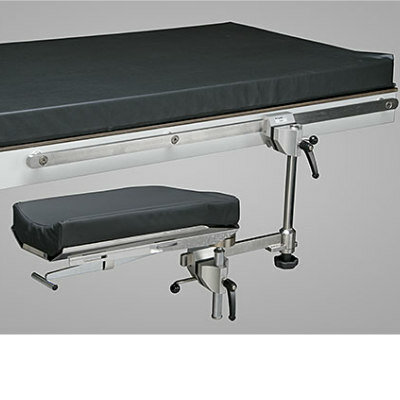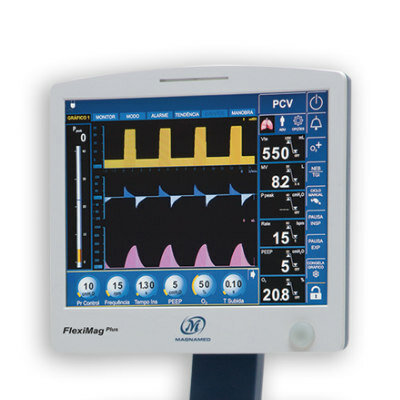NHS Pledges Major Investments in Digital Health Advancement
|
By HospiMedica International staff writers Posted on 23 Feb 2016 |
The United Kingdom National Health Service (NHS; London) has announced that it is committing GBP 4.2 billion to a variety of digital health initiatives.
The new investments, announce by UK Health Secretary Jeremy Hunt, are slated to include GBP 1.8 billion to create a paper-free NHS, another GBP 1 billion on cyber security and privacy, GBP 750 million on updating remote care, and GBP 400 million to digitize the NHS and build a new website, develop and integrate mobile apps, and promote telehealth. Patients will thus be able to book services and order prescriptions online and use digital tools to speak to their doctor online or via video-link. To facilitate the process, the UK Government is planning to roll out free Wi-Fi in all NHS buildings, and is developing a new “click and collect” service for prescriptions.
At culmination, all NHS patients will have access to their own electronic health record (EHR), which will be shared between professionals to prevent patients from having to repeat their medical history, and will also give them the opportunity to upload and send real-time data on long-term conditions such as blood pressure. By 2020, the NHS hoped that 25% of all patients with long term conditions such as hypertension, diabetes, and cancer will be able to monitor their health remotely. A further GBP 250 million will be designated for data outcomes research.
The new initiative is part of an ongoing process by the NHS to save GBP 22 billion by trimming waste and improving productivity. As part of the process, an ongoing review of the NHS information technology (IT) systems is underway, in an effort to create a paper-free healthcare system by 2020. Other goals of the process include remote, at-home management of one-quarter of UK patients with chronic and long-term conditions such as hypertension, diabetes, and cancer, and at that least 10% of patients being able to access physician services online and via medical apps by March 2017.
“The NHS has the opportunity to become a world leader in introducing new technology, which means better patient outcomes and a revolution in healthcare at home,” said health minister Hunt. “On the back of a strong economy, and because of our belief in the NHS and its values, we are investing more than GBP four billion across the health system to ease pressure on the frontline and create stronger partnerships between doctor and patients.”
“The NHS is one of the world's largest health and healthcare systems, and one of its largest employers. It's essential that information technology across the NHS works well and can perform the tasks needed to deliver high quality, safe, and efficient care,” said IT expert Prof. Bob Wachter, PhD, who is conducting a review of computer systems across the NHS as part of the initiative. “I am looking forward to finding out about some of the great work taking place across the NHS and highlighting areas for improvement.”
Related Links:
United Kingdom National Health Service
The new investments, announce by UK Health Secretary Jeremy Hunt, are slated to include GBP 1.8 billion to create a paper-free NHS, another GBP 1 billion on cyber security and privacy, GBP 750 million on updating remote care, and GBP 400 million to digitize the NHS and build a new website, develop and integrate mobile apps, and promote telehealth. Patients will thus be able to book services and order prescriptions online and use digital tools to speak to their doctor online or via video-link. To facilitate the process, the UK Government is planning to roll out free Wi-Fi in all NHS buildings, and is developing a new “click and collect” service for prescriptions.
At culmination, all NHS patients will have access to their own electronic health record (EHR), which will be shared between professionals to prevent patients from having to repeat their medical history, and will also give them the opportunity to upload and send real-time data on long-term conditions such as blood pressure. By 2020, the NHS hoped that 25% of all patients with long term conditions such as hypertension, diabetes, and cancer will be able to monitor their health remotely. A further GBP 250 million will be designated for data outcomes research.
The new initiative is part of an ongoing process by the NHS to save GBP 22 billion by trimming waste and improving productivity. As part of the process, an ongoing review of the NHS information technology (IT) systems is underway, in an effort to create a paper-free healthcare system by 2020. Other goals of the process include remote, at-home management of one-quarter of UK patients with chronic and long-term conditions such as hypertension, diabetes, and cancer, and at that least 10% of patients being able to access physician services online and via medical apps by March 2017.
“The NHS has the opportunity to become a world leader in introducing new technology, which means better patient outcomes and a revolution in healthcare at home,” said health minister Hunt. “On the back of a strong economy, and because of our belief in the NHS and its values, we are investing more than GBP four billion across the health system to ease pressure on the frontline and create stronger partnerships between doctor and patients.”
“The NHS is one of the world's largest health and healthcare systems, and one of its largest employers. It's essential that information technology across the NHS works well and can perform the tasks needed to deliver high quality, safe, and efficient care,” said IT expert Prof. Bob Wachter, PhD, who is conducting a review of computer systems across the NHS as part of the initiative. “I am looking forward to finding out about some of the great work taking place across the NHS and highlighting areas for improvement.”
Related Links:
United Kingdom National Health Service
Latest Health IT News
- Machine Learning Model Improves Mortality Risk Prediction for Cardiac Surgery Patients
- Strategic Collaboration to Develop and Integrate Generative AI into Healthcare
- AI-Enabled Operating Rooms Solution Helps Hospitals Maximize Utilization and Unlock Capacity
- AI Predicts Pancreatic Cancer Three Years before Diagnosis from Patients’ Medical Records
- First Fully Autonomous Generative AI Personalized Medical Authorizations System Reduces Care Delay
- Electronic Health Records May Be Key to Improving Patient Care, Study Finds
- AI Trained for Specific Vocal Biomarkers Could Accurately Predict Coronary Artery Disease
- First-Ever AI Test for Early Diagnosis of Alzheimer’s to Be Expanded to Diagnosis of Parkinson’s Disease
- New Self-Learning AI-Based Algorithm Reads Electrocardiograms to Spot Unseen Signs of Heart Failure
- Autonomous Robot Performs COVID-19 Nasal Swab Tests

- Statistical Tool Predicts COVID-19 Peaks Worldwide
- Wireless-Controlled Soft Neural Implant Stimulates Brain Cells
- Tiny Polymer Stent Could Treat Pediatric Urethral Strictures
- Human Torso Simulator Helps Design Brace Innovations
- 3D Bioprinting Rebuilds the Human Heart
- Nanodrone Detects Toxic Gases in Hazardous Environments
Channels
Artificial Intelligence
view channel
AI-Powered Algorithm to Revolutionize Detection of Atrial Fibrillation
Atrial fibrillation (AFib), a condition characterized by an irregular and often rapid heart rate, is linked to increased risks of stroke and heart failure. This is because the irregular heartbeat in AFib... Read more
AI Diagnostic Tool Accurately Detects Valvular Disorders Often Missed by Doctors
Doctors generally use stethoscopes to listen for the characteristic lub-dub sounds made by heart valves opening and closing. They also listen for less prominent sounds that indicate problems with these valves.... Read moreCritical Care
view channel
Deep-Learning Model Predicts Arrhythmia 30 Minutes before Onset
Atrial fibrillation, the most common type of cardiac arrhythmia worldwide, affected approximately 59 million people in 2019. Characterized by an irregular and often rapid heart rate, atrial fibrillation... Read more
Breakthrough Technology Combines Detection and Treatment of Nerve-Related Disorders in Single Procedure
The peripheral nervous system (PNS) serves as the communication network that links the brain and spinal cord to every other part of the body. It consists of two parts: the somatic nervous system, which... Read moreSurgical Techniques
view channel
Hydrogel-Based Miniaturized Electric Generators to Power Biomedical Devices
The development of engineered devices that can harvest and convert the mechanical motion of the human body into electricity is essential for powering bioelectronic devices. This mechanoelectrical energy... Read moreWearable Technology Monitors and Analyzes Surgeons' Posture during Long Surgical Procedures
The physical strain associated with the static postures maintained by neurosurgeons during long operations can lead to fatigue and musculoskeletal problems. An objective assessment of surgical ergonomics... Read more.jpg)
Custom 3D-Printed Orthopedic Implants Transform Joint Replacement Surgery
The evolving field of 3D printing is revolutionizing orthopedics, especially for individuals requiring joint replacement surgeries where traditional implants fail to provide a solution. Although most people... Read more
Cutting-Edge Imaging Platform Detects Residual Breast Cancer Missed During Lumpectomy Surgery
Breast cancer is becoming increasingly common, with statistics indicating that 1 in 8 women will develop the disease in their lifetime. Lumpectomy remains the predominant surgical intervention for treating... Read morePatient Care
view channel
Surgical Capacity Optimization Solution Helps Hospitals Boost OR Utilization
An innovative solution has the capability to transform surgical capacity utilization by targeting the root cause of surgical block time inefficiencies. Fujitsu Limited’s (Tokyo, Japan) Surgical Capacity... Read more
Game-Changing Innovation in Surgical Instrument Sterilization Significantly Improves OR Throughput
A groundbreaking innovation enables hospitals to significantly improve instrument processing time and throughput in operating rooms (ORs) and sterile processing departments. Turbett Surgical, Inc.... Read more
Next Gen ICU Bed to Help Address Complex Critical Care Needs
As the critical care environment becomes increasingly demanding and complex due to evolving hospital needs, there is a pressing requirement for innovations that can facilitate patient recovery.... Read moreGroundbreaking AI-Powered UV-C Disinfection Technology Redefines Infection Control Landscape
Healthcare-associated infection (HCAI) is a widespread complication in healthcare management, posing a significant health risk due to its potential to increase patient morbidity and mortality, prolong... Read morePoint of Care
view channel
Critical Bleeding Management System to Help Hospitals Further Standardize Viscoelastic Testing
Surgical procedures are often accompanied by significant blood loss and the subsequent high likelihood of the need for allogeneic blood transfusions. These transfusions, while critical, are linked to various... Read more
Point of Care HIV Test Enables Early Infection Diagnosis for Infants
Early diagnosis and initiation of treatment are crucial for the survival of infants infected with HIV (human immunodeficiency virus). Without treatment, approximately 50% of infants who acquire HIV during... Read more
Whole Blood Rapid Test Aids Assessment of Concussion at Patient's Bedside
In the United States annually, approximately five million individuals seek emergency department care for traumatic brain injuries (TBIs), yet over half of those suspecting a concussion may never get it checked.... Read more
New Generation Glucose Hospital Meter System Ensures Accurate, Interference-Free and Safe Use
A new generation glucose hospital meter system now comes with several features that make hospital glucose testing easier and more secure while continuing to offer accuracy, freedom from interference, and... Read moreBusiness
view channel
Johnson & Johnson Acquires Cardiovascular Medical Device Company Shockwave Medical
Johnson & Johnson (New Brunswick, N.J., USA) and Shockwave Medical (Santa Clara, CA, USA) have entered into a definitive agreement under which Johnson & Johnson will acquire all of Shockwave’s... Read more
















